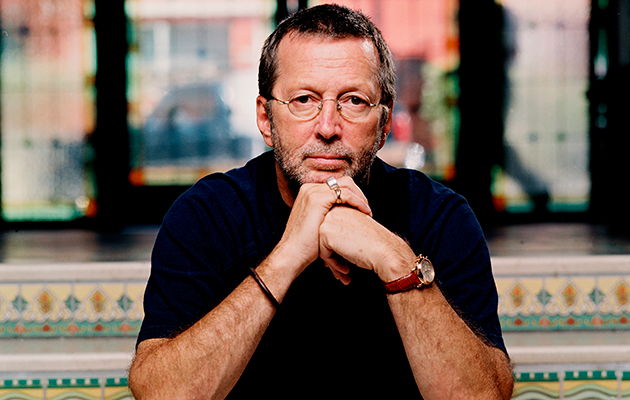When Uncut meets Eric Clapton in the summer of 2014, he has just completed a new album, The Breeze, a tribute to his inspirational old friend, JJ Cale. It soon becomes clear, though, that it’s not just Cale’s death that has put Clapton in a reflective mood. In a frank and moving interview, he co...
You mentioned retirement. Can you really envisage a day where you stop entirely and no longer pick up a guitar or sing?
Maybe. Physically, it might be that I can’t, if it just hurts too much. I have odd ailments. I’ve had posture problems from playing heavy electric guitars on stage, one side of my body scrunches up, that gives me lower back problems from time to time. At the moment I’ve got tendonitis, which means that if I make a barre chord I get pain all the way up my arms into my neck and shoulder. It limits me, but I do everything I can to stay healthy. I go to see a physio about my arm and there are things you can do with acupuncture and stuff like that. My joints are pretty good, actually, but the muscles get tired. So there’ll come a time when I’ll think, ‘Is it worth it? You don’t sound very good. You’re missing things, your timing is gone.’ I watch myself to see if I’m really deteriorating. I’m not really, at the moment, but I’m not where I was, there’s no doubt about it.
I suppose we often assume that musicians just keep getting better at what they do.
There may be a peak, mightn’t there, and you come down the other side. I don’t want to go off the boil to the point where I’m embarrassing myself.
Do you still practise?
I do practise. I need to play in order to keep in touch with what I’m about to do, or just to entertain myself – because I like the sound of what I do now and then – and also to keep physically agile. But there are some things that I just don’t need to do so much. If I try and keep it simple it’s OK.
Do you ever look at other guitarists and think, I wish I could do that?
Oh yeah! God, yeah. One of my heroes is Kurt Russell. [Laughs] What!? Not Kurt Russell, Kurt Rosenwinkel. He’s a jazz guitar player. Very fluid. He’s a genius, he really is, and a lovely man. He has the ability to play directly what he hears in his head. I can’t do that. I go to the same old phraseology, or I have to work things out in advance. He’s a proper jazz musician, and I’m in awe of that. He’s got up to play with me a couple of times, we’ve played a blues, or “Cocaine”, and he just flies like a bird. I think, man, that’s a wonderful thing to be able to do.
But it often looks like that’s exactly what you do onstage. There’s no filter, it’s coming straight to your fingertips.
I’m not saying I’m completely calculated. I can lose myself, and then I don’t know what I’m doing. Something seems to happen of its own volition, and I just try to get out of the way. But it’s not frequent, shall we say. It happens now and then.
Is it the same with writing – has it mostly been about graft rather than bolts of lightning?
No, it’s both. “Wonderful Tonight” came fully formed, just like that. So did a song of mine called “Golden Ring”. If it’s that quick you don’t even give it any value. You think, ‘This is too easy, it can’t be any good.’ “Layla” was a labour of love. Writing that took a long time, bits and pieces stuck together. It was a collage. So it’s both.
Who do you regard as your peers? Are they artists of comparable stature to you who are still out there doing it – Dylan, Neil Young, McCartney, the Stones – or people like Rosenwinkel?
I would acknowledge the people who grew up listening to the same stuff as I did, those are the ones that I would be in tune with. People like Jimmie Vaughan, Doyle Bramhall, Derek Trucks, Robert Cray – though they’re younger than me, those guys. People who are more well-versed in blues, that’s who I identify with as my peers. Definitely Jimmie Vaughan, he’s probably at number one, and Robert’s not far behind. These guys have stayed true to their principles all the way through. Commercial success hasn’t really swayed them off the path.



